By Kevin Walsh.
On April 7, Finance Minister Chrystia Freeland delivered her budget (“Budget 2022”) to the House of Commons.
Overall, Budget 2022 doesn’t offer too many surprises. In fact, the biggest surprise is what isn’t in the budget. In particular, there’s no increase to capital gains rates, no increase to personal tax rates for high-income earners and no (substantial) change to the principal residence exemption.
Although this document is still quite fresh, here are our initial thoughts on Budget 2022, along with highlights that we believe are most relevant to our clients.
Capital gains inclusion rate
Contrary to the annual rumour mill, no change to the tax rates on capital gains was proposed.
Principal residence exemption
Changes to the principal residence exemption were also subject to rumour and speculation over the past six months. These rules are mostly unchanged. However, there is a new deeming rule covering personally owned residential property that is sold less than 12 months after acquisition. Specifically, unless an exception applies, the disposition of real estate by an individual during that timeframe will be deemed as income and not a capital gain. The new rule applies to both rental properties and principal residences that would, if a capital gain, be eligible for the principal residence exemption. Exceptions include:
- Death – of the taxpayer or a related person
- Household addition – birth of child, adoption, or care of an elderly parent
- Separation – disposition due to the breakdown of a marriage
- Personal safety such as the threat of domestic violence
- Disability or illness
- Employment change – involuntary termination of employment or when an employee accepts a new job and moves to a home that is at least 40 kilometers closer to their new place of employment.
- Insolvency
- Involuntary disposition – expropriation, condemnation, or natural or man-made disaster
This rule aims to combat perceived avoidance or minimization of tax on short-term real estate investments. In our view, it’s good tax policy. The new rule will take effect on January 1, 2023.
Establishment of tax-free First Home Savings Account (FHSA)
This is similar to an RRSP in that the contributor receives a deduction for eligible contributions and the income earned inside an FHSA is not subject to tax. Unlike with an RRSP, withdrawals from the FHSA are non-taxable. In general terms, here’s how the FHSA will work:
- To open an FHSA, an individual must be at least 18 years of age, be a resident of Canada, and not have lived in a home they owned in the current year or the previous four years.
- The lifetime limit on contributions will be $40,000, with an annual limit of $8,000.
- During their lifetime, an FHSA holder can make a non-taxable withdrawal to put toward the purchase of a single property.
- A withdrawal not for the purchase of a property would be taxable in the same manner as an RRSP.
- If an individual has not completed a home purchase within 15 years of opening an FHSA, they must close the account. They then have the choice of making a non-taxable transfer of the FHSA to an RRSP or withdrawing the funds and paying tax.
- The FHSA will be available at some point in 2023.
Personal income tax matters
The government has added several tax credits for individuals:
- Enhanced First-Time Home Buyers’ Tax Credit – This doubling of the existing non-refundable tax credit from $750 to $1,500 applies to homes purchased starting January 1, 2022.
- Multigenerational Home Renovation Tax Credit – A new non-refundable tax credit for renovation expenses to make space in a taxpayer’s home for a disabled or elderly family member. The maximum credit is $7,500 on $50,000 of renovation costs.
- Home Accessibility Tax Credit – This doubling of the existing non-refundable tax credit from $1,500 to $3,000 applies to renovation expenses in 2022 and future years.
- Medical Expenses Tax Credit for surrogacy and other expenses – This expansion of the existing tax credit covers reproductive expenses to patients other than the taxpayer and their spouse or common-law partner. Specifically, those incurred by a taxpayer with respect to a surrogate mother and a donor of sperm, ova or embryos will now be eligible. This credit will apply to expenses from 2022 and future years.
Small business deduction
Changes to the reduction of the small business deduction with respect to taxable capital employed in Canada (TCEC) in excess of $10 million have been announced. Currently, the small business deduction grind commences when a corporation has TCEC over $10 million and is fully eliminated at $15 million. The new rules, which will see the grind expanded to TCEC up to $50 million, will increase the size of Canadian companies eligible for the small business deduction. This change applies to taxation years beginning on or after April 7, 2022. There was no change to the passive investment income grind.
Substantive CCPCs
New rules are being introduced to eliminate tax planning opportunities whereby Canadian corporations cease to be Canadian-controlled private corporations (CCPCs) to avoid refundable taxes on investment income. These new rules will include a new definition for substantive CCPCs where a corporation is ultimately controlled by Canadian resident individuals. A substantive CCPC would be treated the same as a CCPC for the purposes of refundable taxes on investment income, but it would remain a non-CCPC for other purposes of the Act. For this reason, it probably makes sense to convert any substantive CCPCs to CCPCs. Also, any corporation deemed not be a CCPC because a non-resident or public corporation has a right to acquire its shares will also be considered a substantive CCPC. As a result, the “111(4)(e) Strategy” for transactions will probably longer be effective. These rules apply to taxation years that end on or after April 7, 2022. However, there’s an exception for genuine commercial transactions entered into before April 7, 2022. The exception applies if the taxation year of the corporation ended before that time because of an acquisition of control of the corporation caused by the sale of all or substantially all of the shares of the corporation to a third-party purchaser.
Changes to foreign accrual property income for CCPCs and substantive CCPCs
Currently, a CCPC earning passive income through a controlled foreign affiliate (CFA) can defer Canadian refundable tax if that CFA pays tax in the foreign jurisdiction of at least 25%. This is because a deduction from foreign accrual property income (FAPI) of foreign tax paid times the relevant tax factor, currently 4 for Canadian corporations, is available. The government’s view is that the appropriate rate for a CCPC or substantive CCPC should be similar to the personal tax rate, to account for refundable tax. As such, Budget 2022 proposes to reduce the relevant tax factor for CCPCs and substantive CCPCs to 1.9, the same rate currently applicable to individuals. This means that CCPCs and substantive CCPCs will need to report FAPI and pay Canadian corporate tax on FAPI where the foreign tax paid by the CFA is less than 52.63%. To ensure that this change doesn’t cause a punitive tax result on a fully distributed basis, a portion of taxable dividends paid from the CFA to the CCPC or substantive CCPC will be added to that corporation’s capital dividend account allowing for the payment of non-taxable dividends to shareholders. These rules apply to taxation years beginning on or after April 7, 2022. They will be very complex, and certain structures—particularly those involving foreign real estate corporations—should be reviewed by tax advisors to ensure no adverse tax consequences or compliance burdens result from these changes.
Other measures to come
Budget 2022 also announced several consultations and additional proposed tax changes to be released later in the year. Here’s a summary:
- Genuine intergenerational share transfers – The budget announced a consultation process on perceived permittable, but unintended, “surplus stripping” opportunities provided by Private Member’s Bill C-208, which amended the Income Tax Act effective June 29, 2021. This amendment provided an exception to the surplus stripping that prevent taxpayers from converting a taxable dividend to a capital gain. The consultation process will focus on modifying the amended tax rules to ensure that surplus stripping transactions completed in the context of an intergenerational transfer of a business can occur only when there has been a genuine transfer of a business to the next generation(s).
- Examination of a new minimum tax regime – Presumably, this would replace the existing alternative minimum tax (AMT), which hasn’t changed since it became part of the Income Tax Act since 1986. Although the details are light, the government believes that 28% of high earners pay tax at a rate of 15% on income above $400,000 using credits and deductions. It has calculated the 15% tax rate using a 100% inclusion rate for capital gains, rather than the 50% required by the Income Tax Act, and the cash value of dividends received. The goal of the new minimum tax will be to ensure that “wealthy Canadians pay their fair share of tax.” Once further details are released we will have additional commentary on this new minimum tax.
- Consultation on introducing a new special purpose trust – This Employee Ownership Trust would “facilitate the transition of privately owned businesses to employees,” aligning Canadian law with similar laws in the U.K. and the U.S.
If you have any questions or concerns with the foregoing, please reach out to a member of our team who would be happy to discuss these matters with you.
Posted in Tax Legislation


